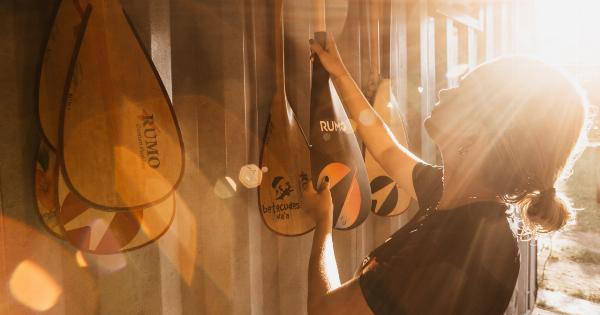Itching can be an incredibly uncomfortable sensation to endure. It can be caused by a variety of different things, including dry skin, allergies, insect bites, and even some medical conditions such as eczema or psoriasis.
Fortunately, there are ways to alleviate the discomfort of itching. Here are some tips on how to get rid of an itch:.
1. Moisturize your skin
Dry skin is one of the most common causes of itching. Keeping your skin moisturized can help relieve the discomfort of itchiness. Use a moisturizing lotion, oil, or cream immediately after bathing or showering, when your skin is still damp.
This will help lock in moisture and keep your skin hydrated throughout the day. Choose a product that is fragrance-free and hypoallergenic to avoid further irritation.
2. Apply a cool compress
If you are suffering from an itchy rash or bug bites, applying a cool compress can help reduce inflammation and relieve the itch.
Soak a clean cloth in cool water or wrap some ice cubes in a cloth and hold it against the affected area for 10-15 minutes.
3. Take an oatmeal bath
Oatmeal has anti-inflammatory properties that can help soothe itchy skin. Add one cup of finely ground oatmeal to your bathwater and soak in it for 15-20 minutes.
Alternatively, you can use an oatmeal-based product, such as an oatmeal bath soak or lotion.
4. Use topical anti-itch creams and ointments
Over-the-counter topical creams and ointments can provide temporary relief from itching. Look for products that contain hydrocortisone, calamine, or pramoxine. Apply the cream or ointment to the affected area as directed on the packaging.
Be sure to wash your hands thoroughly after applying.
5. Avoid scratching
Scratching an itch can feel good temporarily, but it can also make the itching worse and increase the risk of infection. If you feel the urge to scratch, try to resist it.
Distract yourself with another activity, such as reading or listening to music, or gently massage the affected area instead.
6. Identify and avoid triggers
If you suffer from itching regularly due to certain triggers, such as allergies or irritants, try to identify the cause and avoid it as best you can. Common triggers include pet dander, pollen, detergents, and fabrics.
If you can’t avoid the trigger entirely, try to minimize your exposure by taking appropriate precautions, such as wearing gloves or a mask, or using allergen-free products.
7. Seek medical attention
If your itch persists despite trying these remedies, or if you develop other symptoms such as fever, swelling, or rash, it’s important to seek medical attention.
Your doctor or dermatologist can help diagnose the underlying cause of your itching and prescribe appropriate treatment.
8. Use aloe vera gel
Aloe vera gel has anti-inflammatory, antimicrobial, and moisturizing properties that can help relieve itching and promote healing. Apply freshly extracted aloe vera gel on the affected area and leave it on for 15-20 minutes before rinsing.
Repeat the application 2-3 times a day for several days until the itching subsides.
9. Take an antihistamine
If your itching is due to an allergic reaction, taking an antihistamine can help relieve the symptoms. Antihistamines block the action of histamine, a chemical that triggers allergic reactions, and can help reduce itching, redness, and swelling.
Consult your doctor or pharmacist for advice on the appropriate antihistamine for your condition.
10. Practice stress-reducing techniques
Stress can exacerbate itching, making it feel more severe and persistent. Practicing stress-reducing techniques, such as deep breathing, meditation, or yoga, can help calm your mind and reduce the intensity of your itching.
Regular exercise or engaging in a hobby you enjoy can also help manage stress levels.































